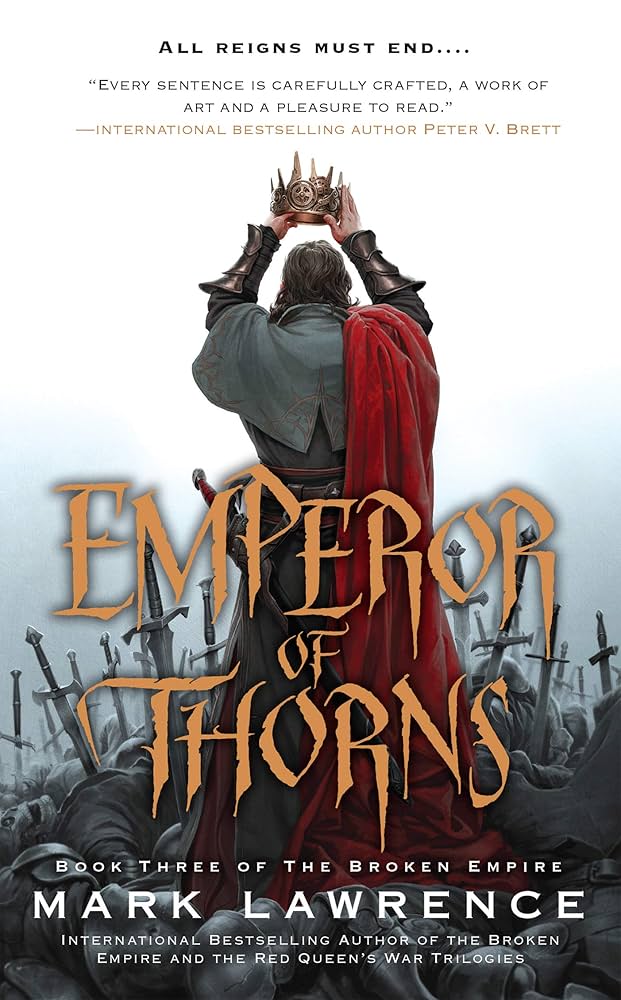
Emperor of Thorns (The Broken Empire, Book 3)
Chapter 49
by Mark, Lawrence,The chapter opens with the protagonist and his retinue advancing toward the emperor’s palace in Vyene, a massive sandstone structure held together by gravity alone. The Pope’s corpse lies abandoned amid the aftermath of violence, and the protagonist reflects on the power he might wield with an army at his back. The mood is somber, underscored by the cold wind and the clatter of hooves. The protagonist’s grief over his father’s death resurfaces, leaving him feeling hollow and unresolved, as he grapples with the irreversible nature of his actions and the scars they’ve left behind.
As the group approaches the palace, the protagonist contemplates the weight of his ambitions and the legacy he might leave. He acknowledges the futility of seeking justice or redemption for past wrongs, symbolized by the thorns etched into his wrist. The world around him seems to mirror his turmoil, with columns of smoke rising in the distance, hinting at unseen threats—possibly the Dead King’s forces or another army. The protagonist’s cynicism and weariness are palpable as he dismisses the idea of favor from dead emperors, instead focusing on the political maneuvering ahead.
The grandeur of the palace contrasts with the protagonist’s inner turmoil. The Hall of Emperors, lined with statues of past rulers, serves as a reminder of the legacy he seeks to join—or defy. Katherine challenges his motives, questioning whether his desire for power is truly about saving the empire or merely personal ambition. The protagonist’s response is ambiguous, suggesting a mix of duty and darker impulses. The tension between his public persona and private struggles is evident as they prepare to enter the throne room, where weapons must be surrendered and searches conducted.
The chapter concludes with an unexpected encounter with Dr. Taproot, whose eccentric demeanor provides a brief respite from the gravity of the situation. His condolences for the protagonist’s father’s death are met with a mix of irritation and resignation, further highlighting the protagonist’s unresolved grief. The scene underscores the theme of legacy and the inescapable weight of the past, as the protagonist stands on the threshold of a pivotal moment in his quest for power, surrounded by both allies and unseen dangers.
FAQs
This chapter constitutes the core content of 《Chapter 47》 readers are advised to study it carefully to grasp the key points.
Quotes
Chapter 47 – The compelling insights in this chapter merit deep reflection.
